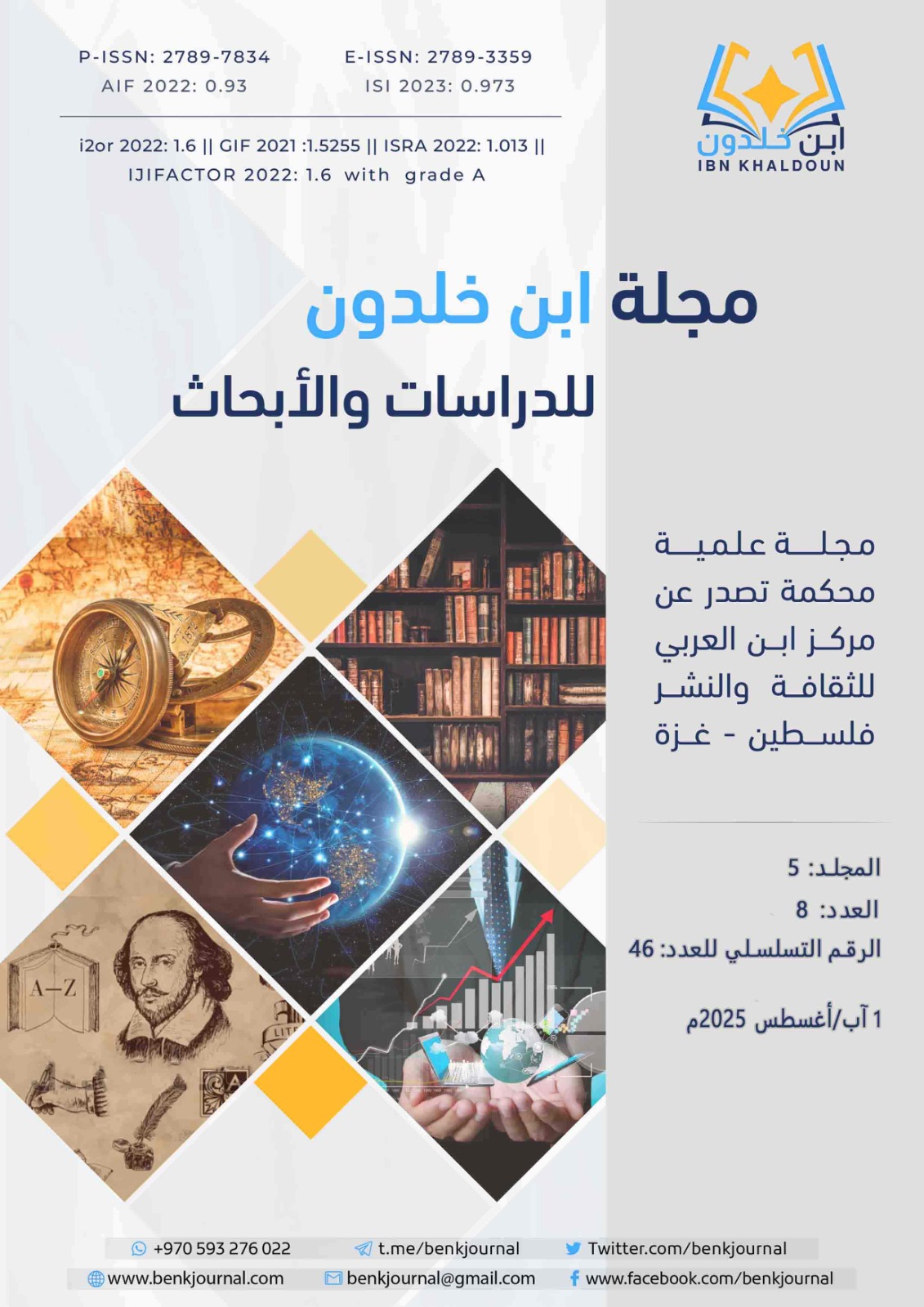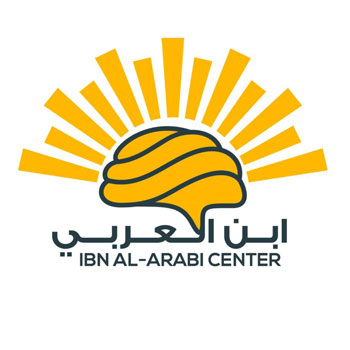أثر تطبيقات التكنولوجيا المالية (الفنتك) على التحول الرقمي والتنمية المستدامة
DOI:
https://doi.org/10.56989/benkj.v5i8.1559الكلمات المفتاحية:
التكنولوجيا المالية، الفنتك، الشمول المالي، التحول الرقمي ، التنمية المستدامة، الذكاء، المدفوعات الرقمية، المدفوعات الرقمية ، سلاسل الكتل، أهداف التنمية المستدامةالملخص
يهدف هذا البحث إلى استكشاف تأثير تطبيقات التكنولوجيا المالية (FinTech) في تعزيز مسار التحول الرقمي وتحقيق التنمية المستدامة، مع إيلاء اهتمام خاص بالدول النامية والاقتصادات الناشئة. حيث ركّزت الدراسة على تحليل العلاقة بين تبنّي تقنيات الفنتك وتوسيع نطاق الشمول المالي، من خلال تحليل تأثير تقنيات مثل المحافظ الرقمية، وأنظمة الذكاء الاصطناعي، وتقنية السجل الموزع (بلوك تشين) على توسيع إمكانية الوصول إلى الخدمات المالية للفئات التي كانت تفتقر إليها تقليديًا.
استعرضت الدراسة بيانات حديثة صادرة عن قاعدة بيانات Global Findex للبنك الدولي (2021)، والتي أظهرت تطورًا ملحوظًا في توظيف الحلول المالية الإلكترونية وزيادة نسبة الأفراد الذين يمتلكون حسابات مالية رسمية، ما يبرز الدور المحوري للتكنولوجيا المالية في تضييق الهوة الاقتصادية والاجتماعية. كما تناول البحث كيفية مساهمة الفنتك في دعم المشروعات متناهية الصغر، وتحسين التمكين الاقتصادي للمرأة، ورفع كفاءة الخدمات المالية للفئات المهمشة، بما يتماشى مع أهداف التنمية المستدامة، مثل الحد من الفقر، وتعزيز النمو الشامل، وتحقيق العدالة الاجتماعية.
واعتمدت الدراسة في منهجيتها على تحليل نظري وتطبيقي لمجموعة من التجارب الدولية والمحلية، ما أتاح تقديم مجموعة من التوصيات الهادفة إلى تشجيع الابتكار المالي، وتطوير الأطر التنظيمية، وتعجيل خطوات الرقمنة المستدامة ضمن القطاع المالي.
This study aims to explore the impact of Financial Technology (FinTech) applications on advancing digital transformation and achieving sustainable development, with a particular focus on developing countries and emerging economies. The research investigates the relationship between the adoption of FinTech solutions and the expansion of financial inclusion, examining how tools such as digital wallets, artificial intelligence, and blockchain technology contribute to improving access to financial services for traditionally underserved populations.
The study reviewed recent data from the World Bank's Global Findex Database (2021), which highlights significant growth in the use of digital financial tools and the ownership of formal financial accounts—evidence of FinTech’s positive role in reducing economic and social disparities. Furthermore, the research addresses FinTech's role in supporting micro-enterprises, economically empowering women, and enhancing financial services for marginalized groups, thereby contributing to several Sustainable Development Goals (SDGs), such as poverty reduction, inclusive economic growth, and social equity.
The methodology relied on a combination of theoretical and applied analysis of international and local case studies, leading to practical recommendations aimed at promoting financial innovation, developing regulatory frameworks, and accelerating sustainable digital transformation in the financial sector.
المقاييس
المراجع
أولًا: المراجع العربية.
البرديني، رمضان عايش (2025م): مخاطر تطبيقات التكنولوجيا المالية في المصارف الإسلامية القطرية وطرق الوقاية منها، مجلة العلوم الإنسانية والطبيعية، 6(3)، 266–276.
البوبيدي، رانية؛ نجييمي، عيسى (2024م): تطبيقات التكنولوجيا المالية الإسلامية كأداةٍ لدعم التحول الرقمي – تجارب دولية وعربية، المجلة الجزائرية للعولمة والسياسات الاقتصادية، 15(1)، 73–91.
السيد، فاطمة الزهراء محمد، محمد درويش، عبد الناصر، عبد العزيز أبو العلا، (2025م): أثر استخدام تقنيات التحول الرقمي في المشروعات الصغيرة والمتوسطة على جودة التقارير المالية، المجلة العلمية للدراسات والبحوث المالية والتجارية، 6(2)، 1475– 1511.
جدايني، ميمي (2022م): واقع وتحديات التكنولوجيا المالية "الفنتك" في المنطقة العربية، مجلة اقتصاد المال والأعمال، 7(1)، 125– 142.
السيخ، عبد الله صلاح حسن (2025م): التكنولوجيا المالية ودورها في تحسين أنظمة الضرائب، مجلة الآداب والعلوم الإنسانية والاجتماعية، (120)، 50– 62.
عطاء الله، بن صبرينة؛ بورقبة، قويدر (2025م): استخدام التكنولوجيا المالية كآليةٍ لتحديث نظام الاعتماد المستندي لتطوير التجارة الخارجية الجزائريةJournal of Economic Geography، 2(2)، 153175.
عبد العزيز، بن شهيدة سارة؛ حمداني، موسى (2025م): دراسة قياسية لأثر التكنولوجيا المالية على النمو الاقتصادي لعينة من الدول الناشئة باستعمال نماذج البانل خلال الفترة (2000 – 2022م)، Journal of Economic Geography، 2(2)، 5166.
عثمان، بن مسعي ريان؛ عثمانية، عثمان (2025م): دور التكنولوجيا المالية في تحسين الأداء المصرفي الألماني – مع الإشارة إلى حالة الجزائر، تبسة: جامعة الشهيد الشيخ العربي التبسي، أطروحة دكتوراه.
وحيد أحمد، جيهان (2023م): دور التحول الرقمي في تفعيل تطبيق الإطار المفاهيمي للتقارير المالية، المجلة العلمية للبحوث، والدراسات التجارية، 37(3)، 595 - 654.
ثانيًا: المراجع الأجنبية.
Al Hudithi, F., & Siddiqui, K. A. (2021). Designing the guidelines for FinTech curriculum. Entrepreneurship and Sustainability Issues, 9(1), 633.
Alt, R., & Huch, S. (2022). Fintech Dictionary. Springer Fachmedien Wiesbaden.
Awotunde, J. B., Adeniyi, E. A., Ogundokun, R. O., & Ayo, F. E. (2021). Application of big data with fintech in financial services. In Fintech with artificial intelligence, big data, and blockchain (pp. 107–132). Singapore: Springer Singapore.
Kusuma, D. R. .(2025) The effect of financial technology on sustainability performance: Mediating role of green finance. Journal of Management and Business Insight, 3(1), 1-10
Liu, Q., Chan, K. C& ,. Chimhundu, R. .(2024م) Fintech research: systematic mapping, classification, and future directions. Financial Innovation, 10(1), 24.
Mavlutova, I., Spilbergs, A., Verdenhofs, A., Natrins, A., Arefjevs, I., & Volkova, T. (2022). Digital transformation as a driver of the financial sector sustainable development: An impact on financial inclusion and operational efficiency. Sustainability, 15(1), 207.
Sayari, S., Mgadmi, N., Dhaou, I. B., Almehdar, M., Chishty, S. K., & Rabeh, A .(2025) Advancing Sustainable Development Through Digital Transformation and Fintech Innovation. Sustainability, 17(11), 4924.
Wang, H., Chen, X., Du, J., & Lai, K. K. (2022). Classification of FinTech patents by machine learning and deep learning reveals trends of FinTech development in China. Mathematical Problems in Engineering, 2022(1), 1852447.
Zaid, M. A. K., Khan, M. F., Al-Mekhlafi, A. W. A. G. S., Al Koliby, I. S., Saoula, O., Saeed, H. A. E. M., & Mohammad, R. A. .(2025) The future of green finance: How digital transformation and FinTech drive sustainability. Discover Sustainability, 6(1), 1–13.
Accenture. (2023, January 17). Top 6 FinTech Innovation Trends for 2023. accenture.com
Raviteja, N .(2024م) .Financial technology (Fintech) and banking industry transformation: A symbiotic evolution into the digital era. transactions, 1, 2
Jha, S., & Dangwal, R. C. .(2024م) Fintech services and financial inclusion: a systematic literature review of developing nations. Journal of Science and Technology Policy Management.
Mhlanga, D., .(2023) FinTech and artificial intelligence for sustainable development: The role of smart technologies in achieving development goals. In FinTech and artificial intelligence for sustainable development: The role of smart technologies in achieving development goals (pp. 3-13). Cham: Springer Nature Switzerland.
Buckley, R. P., Zetzsche, D. A., Arner, D. W., & Veidt, R. (2021). FinTech, financial inclusion and the UN Sustainable Development Goals. In Routledge Handbook of Financial Technology and Law (pp. 247-272). Routledge.
التنزيلات
منشور
كيفية الاقتباس
إصدار
القسم
الرخصة
الحقوق الفكرية (c) 2025 مجلة ابن خلدون للدراسات والأبحاث

هذا العمل مرخص بموجب Creative Commons Attribution-NonCommercial 4.0 International License.































 ElDjawda Soft
ElDjawda Soft